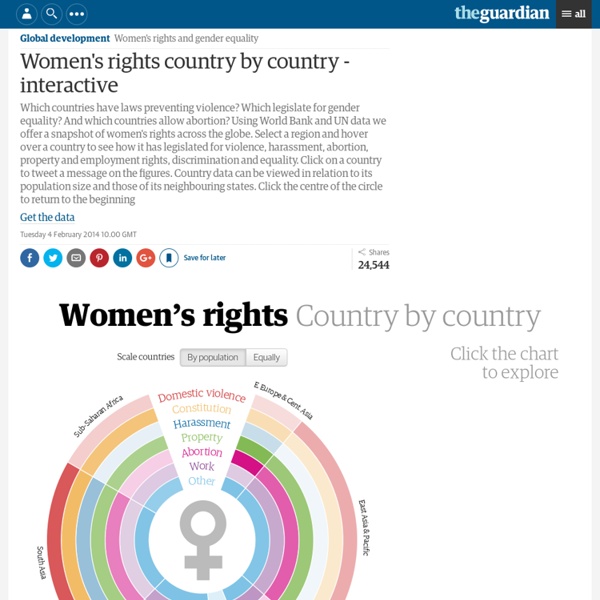



What does Creative Commons means? (Infographic) - Iceweasel [german version] Many People know that there is something called "creative commons licenses". But what does it mean? Is it a license? No, CreativeCommons is a non-profit organization. Gates Is Funding USDOE Conferences and “Innovations” What corporate reformers manage to devise continues to amaze me. I know. It shouldn’t. But it does. An Epochal Discovery: A Habitable Planet Orbits Our Neighboring Star One hundred and one years ago this October, a Scottish astronomer named Robert Innes pointed a camera at a grouping of stars near the Southern Cross, the defining feature of the night skies above his adopted Johannesburg. He was looking for a small companion to Alpha Centauri, our closest neighboring star system. Hunched over glass photographic plates, Innes teased out a signal. Across five years of images, a small, faint star moved, wiggling on the sky. It shifted just as much as Alpha Centauri, suggesting its fate was intertwined with that binary system.
Wangari Maathai Wangari Muta Maathai (pronunciation: /wænˈɡɑːriː/ /mɑːtˈaɪ/) (1 April 1940 – 25 September 2011) was an internationally renowned Kenyan environmental political activist and Nobel laureate. She was educated in the United States at Mount St. Scholastica (Benedictine College) and the University of Pittsburgh, as well as the University of Nairobi in Kenya. SFI takes first steps toward a science of slums Feb. 6, 2013 8 p.m. Slums in the world’s fast-growing cities are often seen as problems and, in most cases, outside the law. But, from Paris and Tokyo 150 years ago to Mumbai and Johannesburg today, slums consistently emerge as a byproduct of the socioeconomic pressures of rapid urbanization, and they often don’t get the credit they deserve as entry points to the city for poor migrants, or for the economic activity they generate. With as many as a billion people now living in slums, understanding what might place these communities and their cities on paths of increasing socioeconomic opportunity is a priority.
The Techtopus: How Silicon Valley’s most celebrated CEOs conspired to drive down 100,000 tech engineers’ wages By Mark Ames On January 23, 2014 In early 2005, as demand for Silicon Valley engineers began booming, Apple’s Steve Jobs sealed a secret and illegal pact with Google’s Eric Schmidt to artificially push their workers wages lower by agreeing not to recruit each other’s employees, sharing wage scale information, and punishing violators. On February 27, 2005, Bill Campbell, a member of Apple’s board of directors and senior advisor to Google, emailed Jobs to confirm that Eric Schmidt “got directly involved and firmly stopped all efforts to recruit anyone from Apple.” Later that year, Schmidt instructed his Sr VP for Business Operation Shona Brown to keep the pact a secret and only share information “verbally, since I don’t want to create a paper trail over which we can be sued later?” These secret conversations and agreements between some of the biggest names in Silicon Valley were first exposed in a Department of Justice antitrust investigation launched by the Obama Administration in 2010.
Your Favorite Housewares Are Spewing Poison Dust Inside Your Home People buy the nicest homes they can afford. They spend years—sometimes decades—pouring money into nest-feathering by stocking up on creature comforts. It’s no wonder we spend 90 percent of our lives indoors. Alice Eather: The slam poet who forced oil company Paltar Petroleum out of Arnhem Land Posted 9 Jun 2017, 10:05pmFri 9 Jun 2017, 10:05pm "A leader, a fierce warrior for her country, an educator and poet" is how family and friends are remembering Alice Eather who died last weekend aged 28. The passionate activist became known across Australian Indigenous and arts communities for using slam poetry and documentary to pressure a US oil company to withdraw its application to frack for gas in her home — Arnhem Land.
Cities, Scaling and Sustainability Organizers: Luis Bettencourt, Geoffrey West Cities, Scaling, and Sustainability SFI's Cities, Scaling, and Sustainability research effort is creating an interdisciplinary approach and quantitative synthesis of organizational and dynamical aspects of human social organizations, with an emphasis on cities. Different disciplinary perspectives are being integrated in terms of the search for similar dependences of urban indicators on population size - scaling analysis - and other variables that characterize the system as a whole. A particularly important focus of this research area is to develop theoretical insights about cities that can inform quantitative analyses of their long-term sustainability in terms of the interplay between innovation, resource appropriation, and consumption and the make up of their social and economic activity.